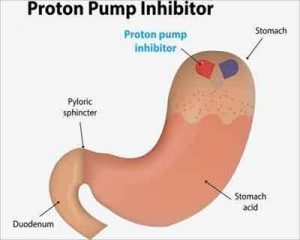- Home
- Editorial
- News
- Practice Guidelines
- Anesthesiology Guidelines
- Cancer Guidelines
- Cardiac Sciences Guidelines
- Critical Care Guidelines
- Dentistry Guidelines
- Dermatology Guidelines
- Diabetes and Endo Guidelines
- Diagnostics Guidelines
- ENT Guidelines
- Featured Practice Guidelines
- Gastroenterology Guidelines
- Geriatrics Guidelines
- Medicine Guidelines
- Nephrology Guidelines
- Neurosciences Guidelines
- Obs and Gynae Guidelines
- Ophthalmology Guidelines
- Orthopaedics Guidelines
- Paediatrics Guidelines
- Psychiatry Guidelines
- Pulmonology Guidelines
- Radiology Guidelines
- Surgery Guidelines
- Urology Guidelines
USE PPI as per latest guidelines by American Gastroenterological Association

Bethesda : When proton pump inhibitors (PPIs) are appropriately prescribed, their benefits are likely to outweigh their risks, according to an American Gastroenterological Association (AGA) Clinical Practice Update published in Gastroenterology, the official journal of AGA. Additionally, there is currently insufficient evidence to recommend specific strategies for mitigating PPI adverse effects.
The long-term use of PPIs by patients for gastroesophageal reflux disease (GERD), Barrett's esophagus and non-steroidal anti-inflammatory drug (NSAID) bleeding prophylaxis doubled in the U.S. from 1999 to 2012. Studies have shown that the number of adverse events doubled during the same period. AGA provides best practice advice for the use of PPIs based on expert opinion and relevant publications:
1. Patients with GERD and acid-related complications should take a PPI for short-term healing, maintenance of healing and long-term symptom control.
2. Patients with uncomplicated GERD who respond to short-term PPIs should subsequently attempt to stop or reduce them. Patients who cannot reduce PPIs should consider ambulatory esophageal pH/impedance monitoring before committing to lifelong PPIs to help distinguish GERD from a functional syndrome.
3. Patients with Barrett's esophagus and symptomatic GERD should take a long-term PPI.
4. Asymptomatic patients with Barrett's esophagus should consider a long-term PPI.
5. Patients at high risk for ulcer-related bleeding from NSAIDs should take a PPI, if they continue to take NSAIDs.
6. The dose of long-term PPIs should be periodically reevaluated so that the lowest effective PPI dose can be prescribed to manage the condition.
7. Long-term PPI users should not routinely use probiotics to prevent infection.
8. Long-term PPI users should not routinely raise their intake of calcium, vitamin B12 or magnesium beyond the recommended dietary allowance.
9. Long-term PPI users should not routinely screen or monitor bone mineral density, serum creatinine, magnesium or vitamin B12.
10. Specific PPI formulations should not be selected based on potential risks.
You can read full article by clicking on following link:-
Freedberg DE, Kim LS, Yang YX, The Risks and Benefits of Long-term Use of Proton Pump Inhibitors: Expert Review and Best Practice Advice From the American Gastroenterological Association, Gastroenterology (2016), doi: 10.1053/j.gastro.2017.01.031. http://www.gastrojournal.org/article/S0016-5085(17)30091-4/fulltext

Disclaimer: This site is primarily intended for healthcare professionals. Any content/information on this website does not replace the advice of medical and/or health professionals and should not be construed as medical/diagnostic advice/endorsement or prescription. Use of this site is subject to our terms of use, privacy policy, advertisement policy. © 2020 Minerva Medical Treatment Pvt Ltd